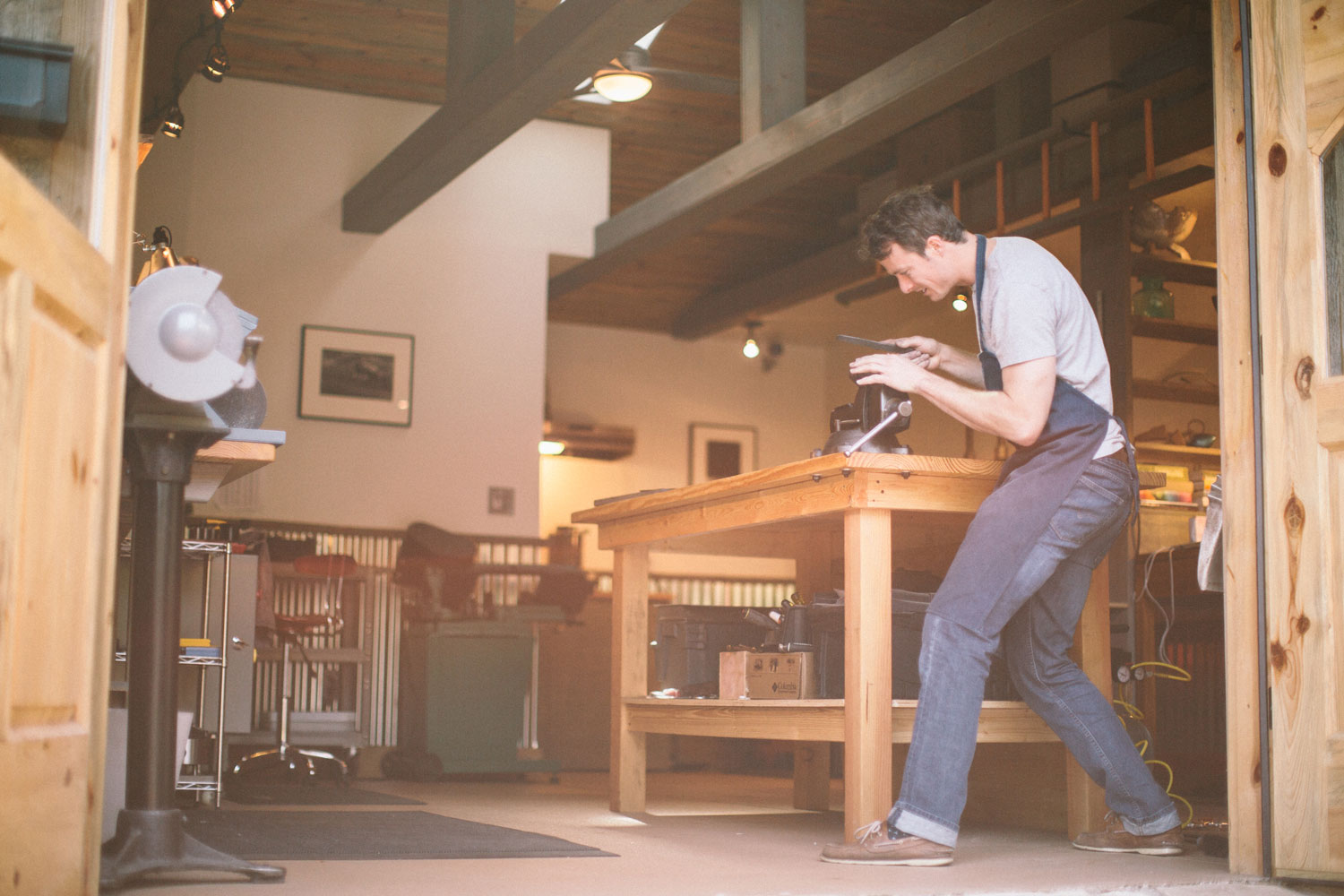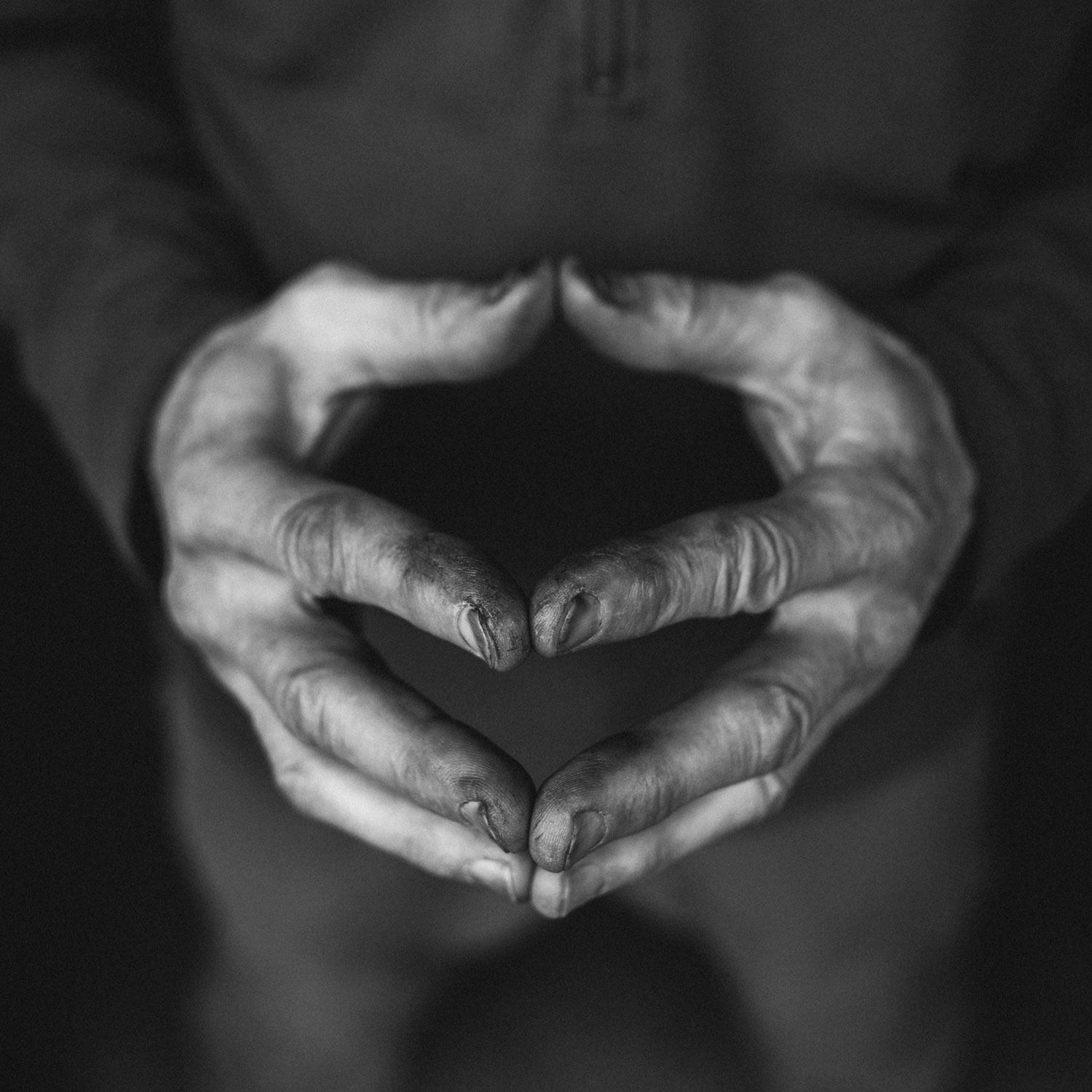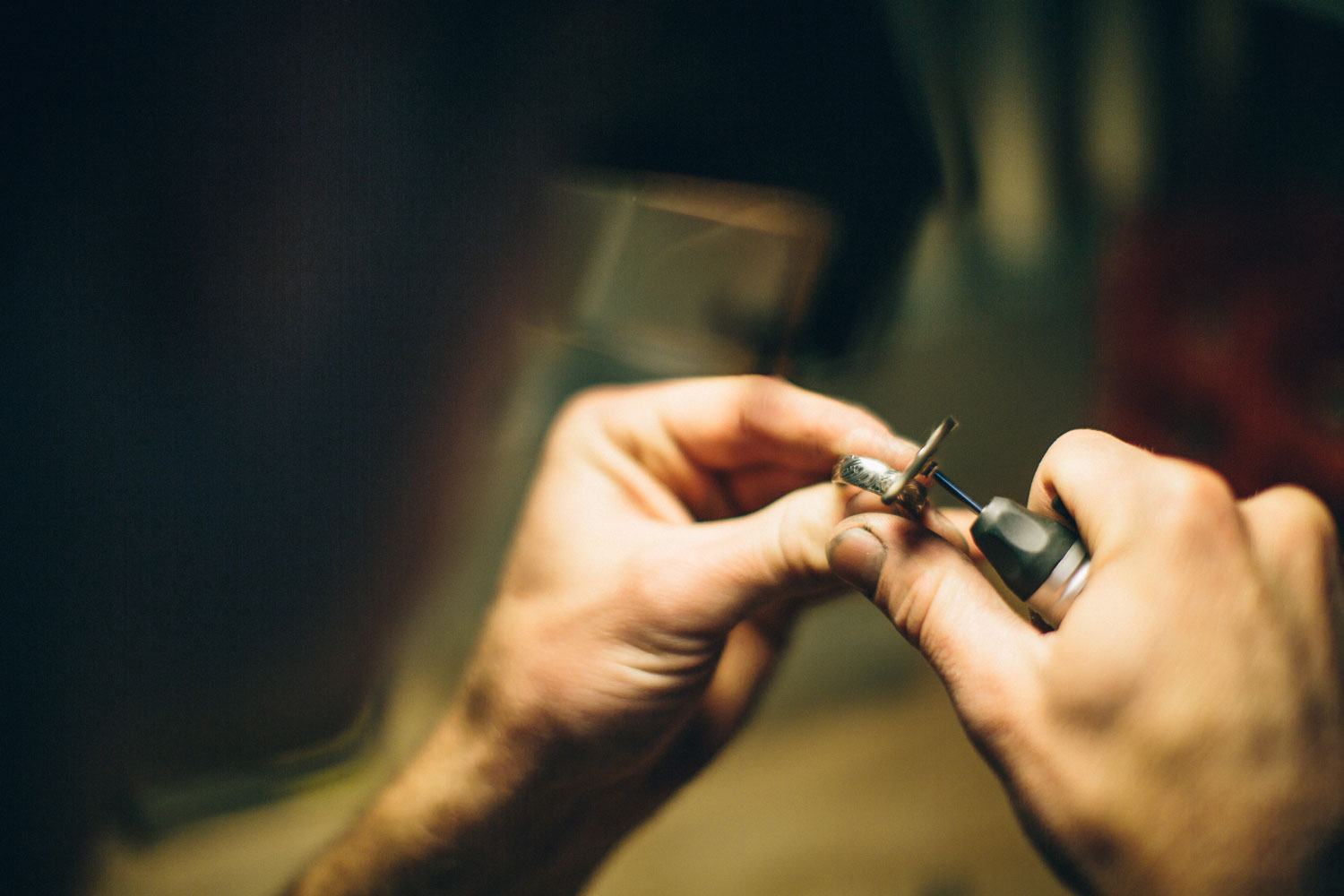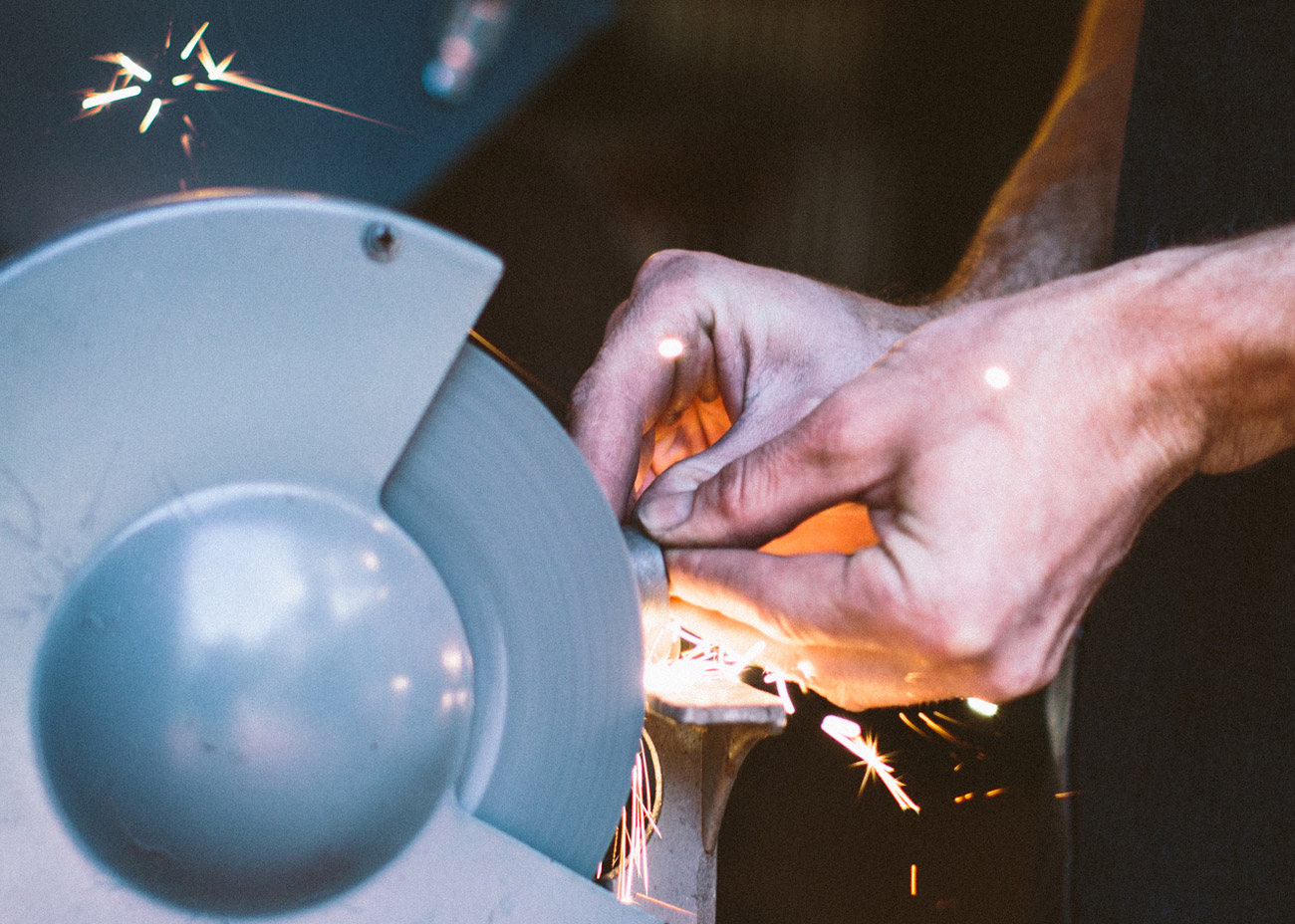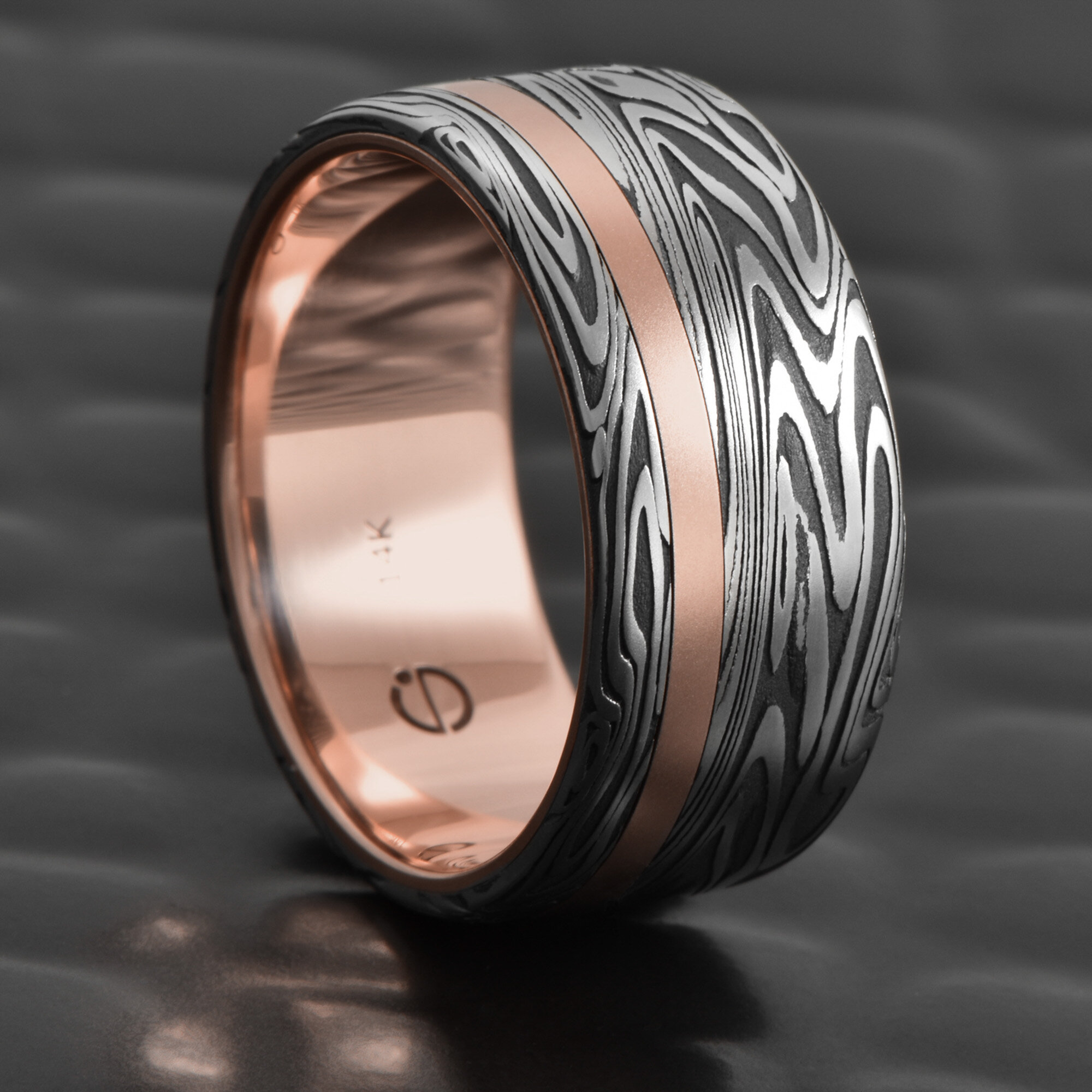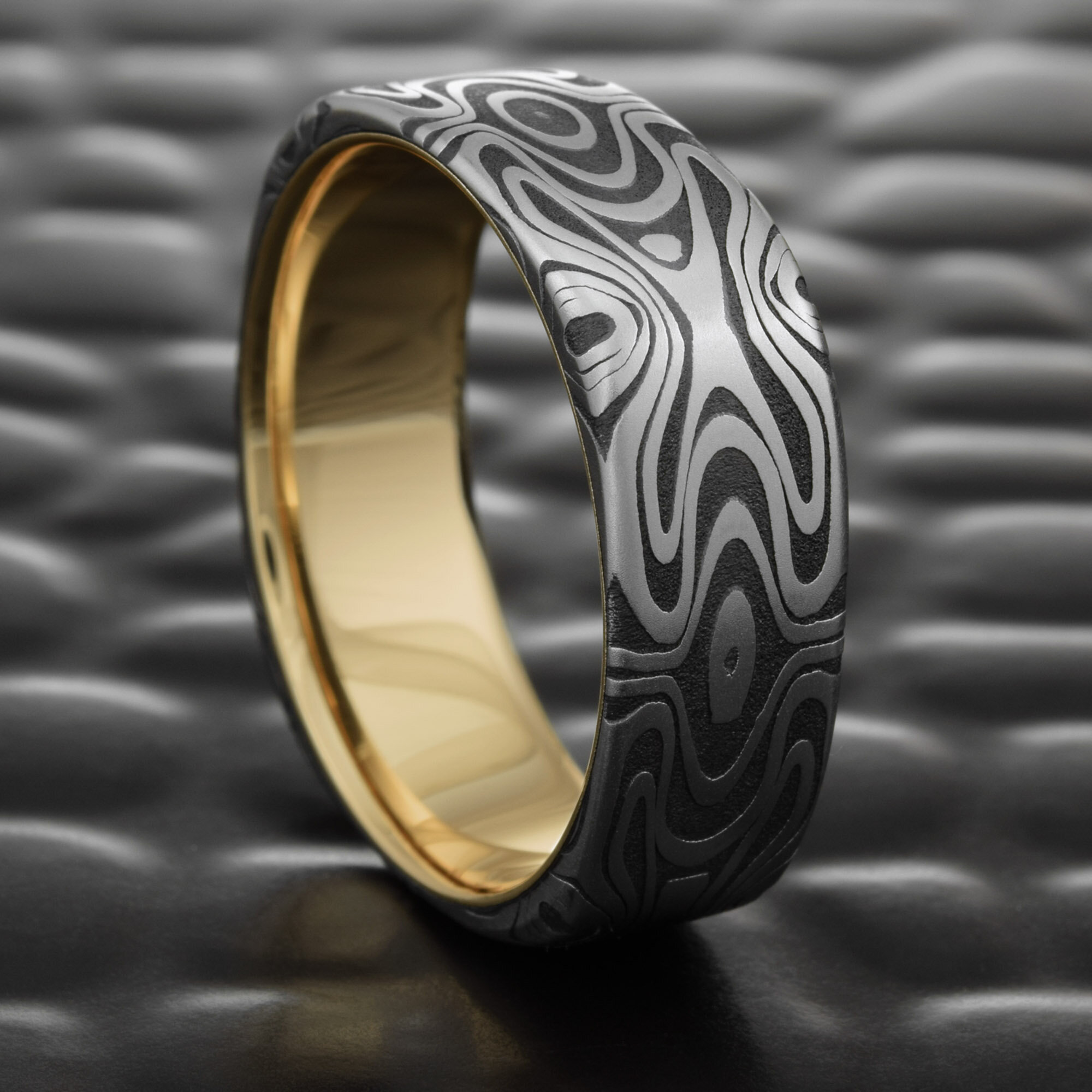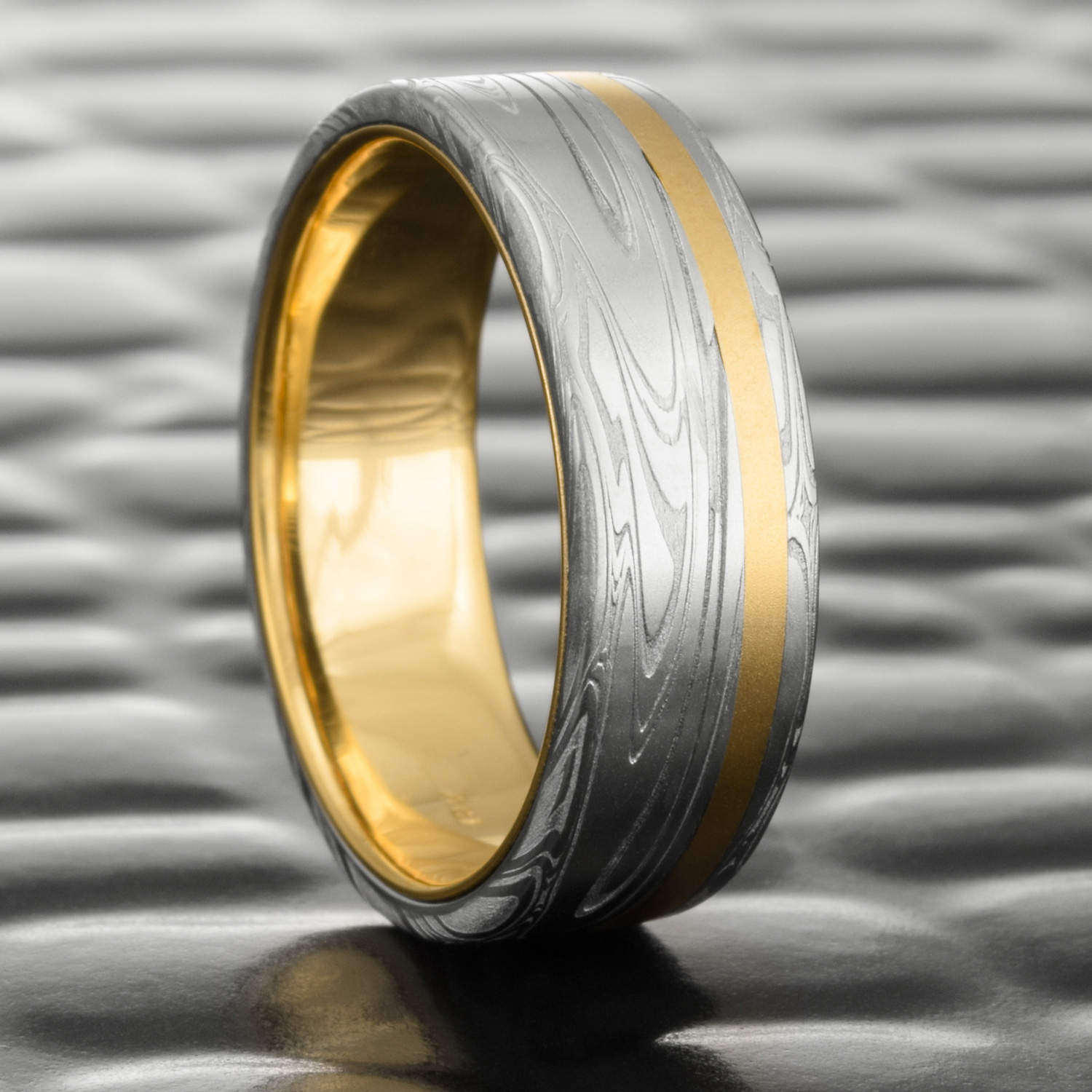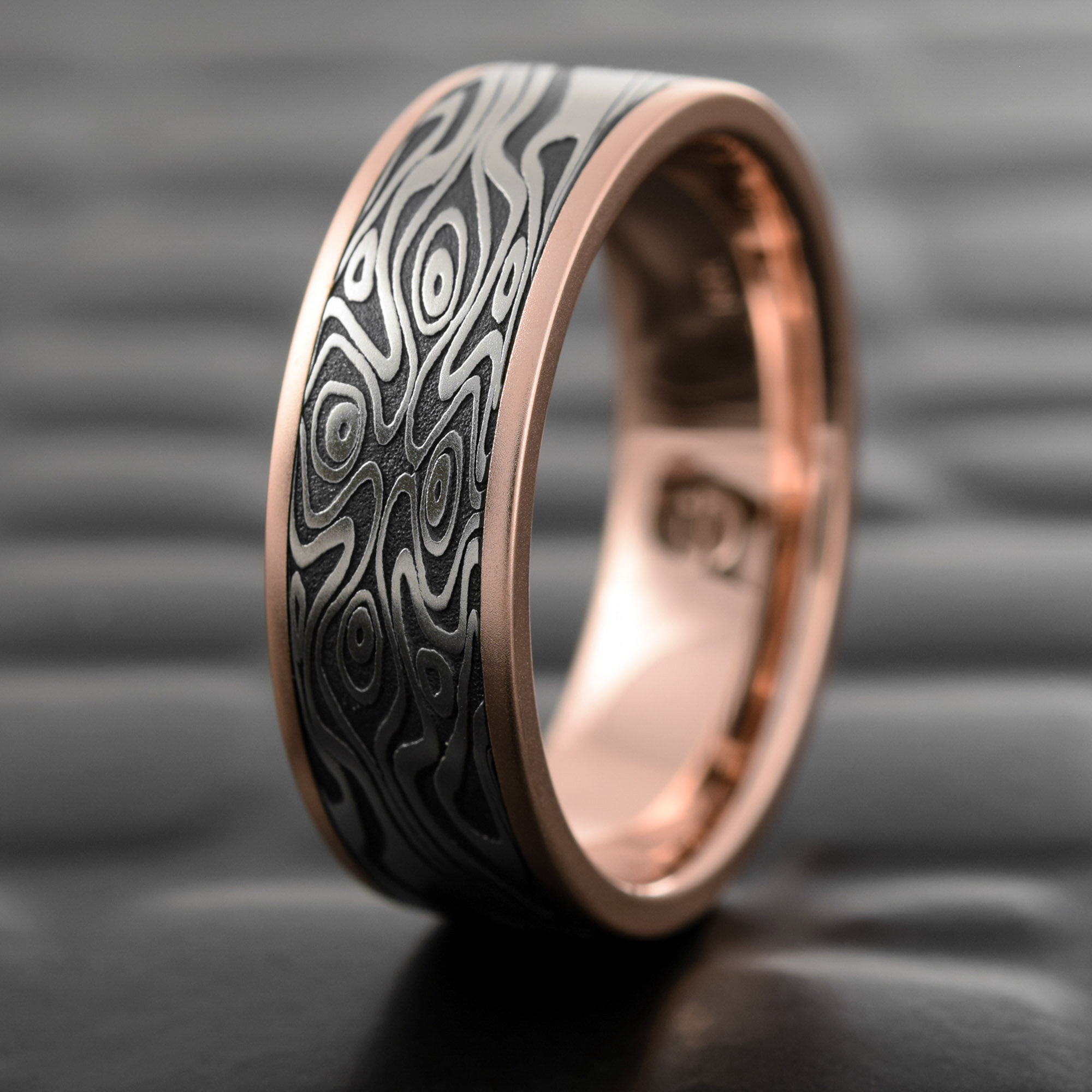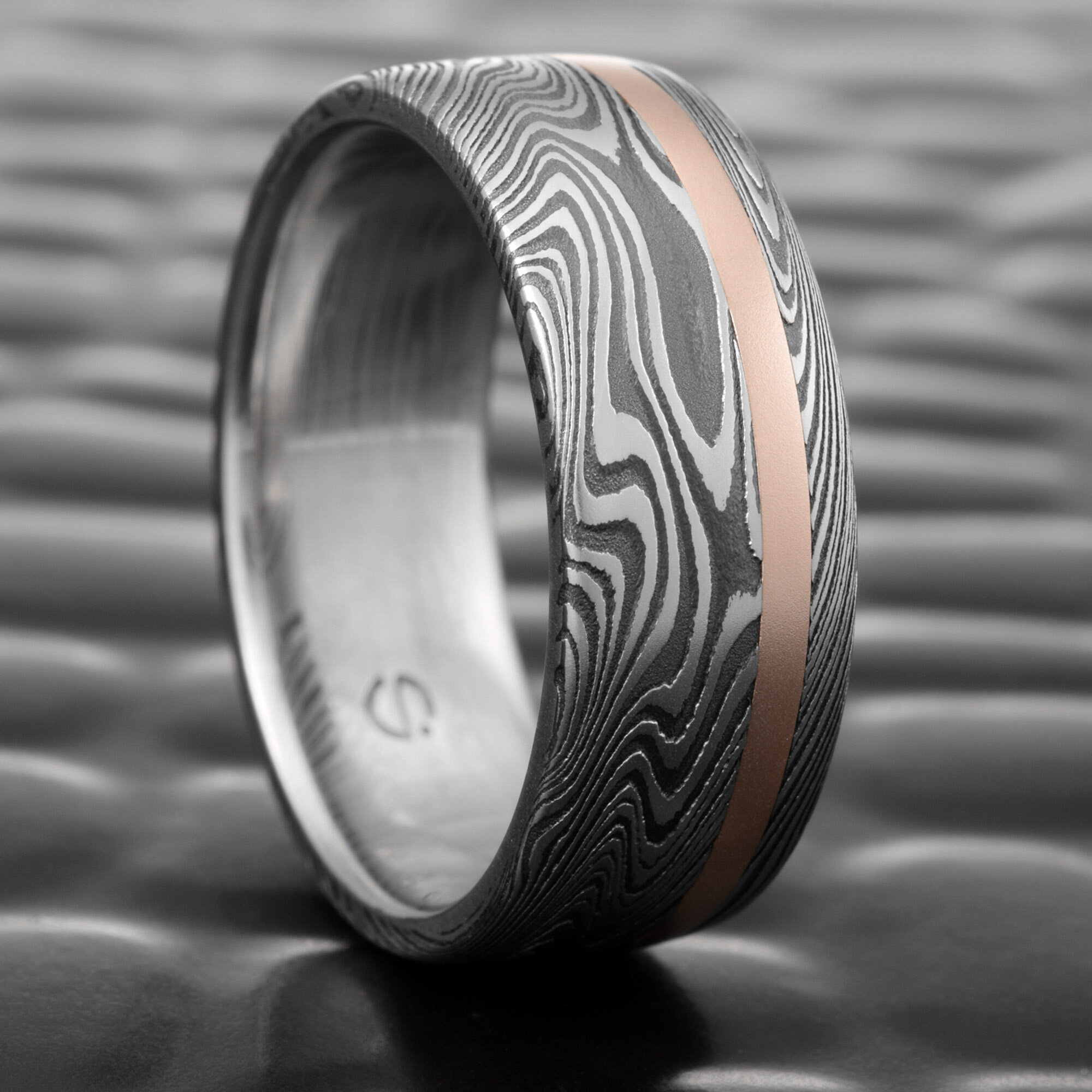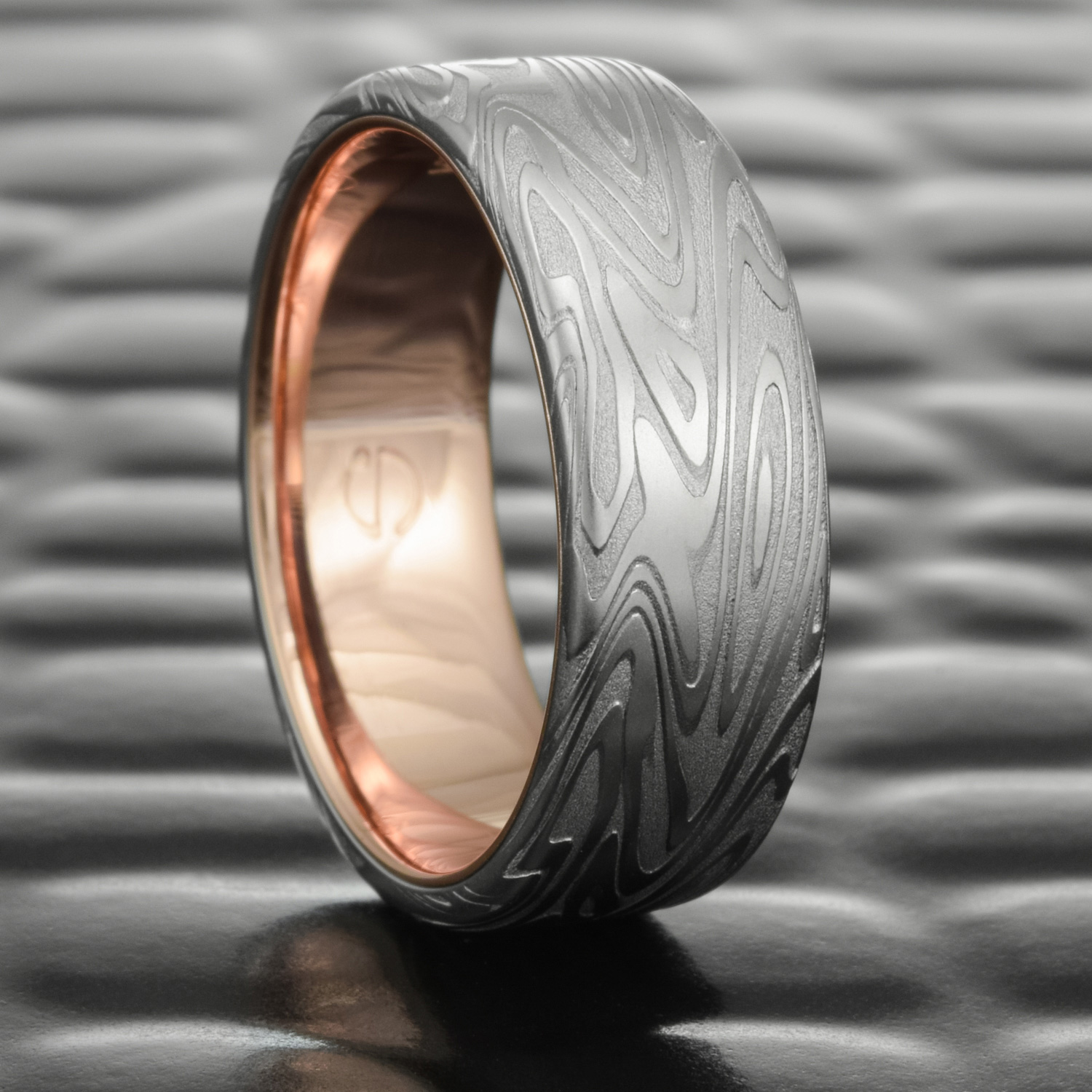What is "Handmade"?
As a maker of Damascus Steel and Mokume Rings, my ability to create with my hands is the differentiator.
Jacob working on a Damascus Steel Ring in his Boulder, CO studio.
A Handmade Damascus Steel Ring is made by a craftsman not a machine.
The term “greenwashing” describes the act of misrepresenting a product or service as sustainable or environmentally friendly for the purpose of attracting recognition by consumers who want the products they buy to reflect their own environmentally conscious values. In the wedding ring trade, one that historically relies on earth mined materials, that can definitely be an issue, but equally alarming is the rapidly growing practice that I like to call “handwashing”.
With rapid advances in manufacturing technology, more and more people are beginning to realize the value placed on skilled hand work. One consequence of this trend is that many jewelry brands have now begun to represent their products as handmade, when in fact, that may be far from the truth or in some cases a straight up lie. To my mind, there are a couple critical things that distinguish a handmade item from a manufactured item. All jewelry is made using tools to transform raw materials into finished pieces. But with a handmade piece, a skilled artisan’s hands are driving the tool. They are not simply pressing a button or sitting on an assembly line doing one small task as quickly as they can. Handmade items derive their true value from the craftsman’s intimate involvement in the making process. They understand the design, how best to execute it, and have the skill and experience to make nuanced adjustments during the making of the piece to bring out the very best of what the design and materials have to offer. The highest level of handmade is when the designer of the piece is also the maker, and, as in the case of Steven Jacob wedding rings, each piece is made for a specific customer. Unfortunately, “Handmade” is not a regulated term like “Certified Organic” or “Fair Trade”, so there aren’t any consequences for brands doing this. The real losers are the customers who invest their trust and money in a maker to create a special ring for them, and actually receive a factory made ring straight from a box in a warehouse.
Dad’s Hands
My Hands
Is “handmade” even important?
The answer, of course, is subjective, but when it comes to an important purchase like a wedding band or other piece of jewelry, knowing if it was made by the hands of a true craftsman may be very important to the purchaser, especially if it has been represented as such. A finely crafted, handmade ring is more than just an object. It is quite literally a reflection of the artist’s skills, knowledge, artistic vision and their attention to the minute details of the making process. It also conveys an understanding by the purchaser, of the importance of a special event for which it was ordered, like an anniversary or wedding. These items are valued for their symbolism and beauty and the reverence of their purpose. Therefore, knowing the ring’s maker and making process becomes all the more important.
It takes skilled hands to make an authentic Damascus Steel Ring.
How to buy “Handmade”.
In an age of computer aided design, rapid prototyping and automated mass manufacturing, the ability to make things with our hands is rapidly declining. Yet still, there is a desire for products made in the traditions of our past. Therefore it is advantageous for genuine handmade products to be labeled as handmade. But since there are no regulations for using the term it is largely misused. For example, when you sell a product on Etsy, there are three category options to choose from to qualify it to be sold on the site: tools and supplies, antiques or handmade. Yet most of what I see on Etsy fall outside of those categories, especially the handmade category. Also, because the term is not regulated, there are no guidelines or qualifiers. If a wedding ring is designed on the computer, 3D printed in plastic resin, cast, and then hand polished, is it handmade? Would it be handmade if a stone was set in the ring by hand. What qualifies something as handmade and how do we know? I have come to the sad realization that we can’t. With today’s unregulated digital culture, businesses and brands can say pretty much whatever they want, without consequence. Unfortunately is up to the customer to do the leg work to determine if the maker is the real deal or not.
In the end, I think it boils down to this: today’s online marketplace requires a more savvy, informed consumer who knows how to filter everything they read, and is empowered to ask questions. So, a bit of advice form an authentic maker, do your homework. Before you buy, meet or contact the maker. Read, write and demand authenticity and transparency. Real craftsman have real credentials and leave an ever evolving trail of work behind them. No one likes to be sold, so stay woke and don’t settle for “handwashing”!
We must use tools to work metal, but how one uses them makes the difference.

